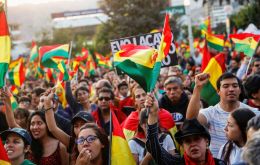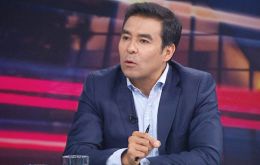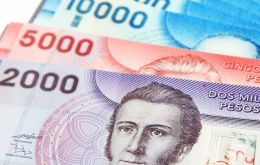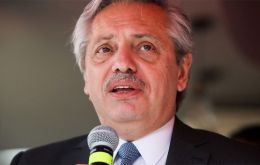MercoPress. South Atlantic News Agency
Economy
-
Monday, December 2nd 2019 - 19:23 UTC
Trump reinstates tariffs on Argentine, Brazilian metals to stand for US farmers

United States President Donald Trump Monday announced he would be reimposing tariffs on imports of metals from Argentina and Brazil as a result of those two countries' devaluing their respective currencies “which is not good for our farmers.” Trump made the statement through his Twitter account.
-
Monday, December 2nd 2019 - 09:29 UTC
3 reasons why Latin America has erupted in protests

From Chile to Venezuela and Bolivia to Nicaragua, it’s no understatement to say that Latin America is on fire.
-
Sunday, December 1st 2019 - 01:34 UTC
Argentina and Brazil elected members of the IMO Council for 2020/21

Argentina and Brazil have been elected as members States of the International Maritime Organization Council for the 2020/21 biennium. IMO is holding its 31st Assembly meeting in London at IMO Headquarters until December 4.
-
Sunday, December 1st 2019 - 01:07 UTC
Rioting Chile forced to cancel the football season and motor rally activities

The football federation in Chile has announced it is to cancel the rest of the season due to security concerns following weeks of anti-government protests. All matches were suspended when the violence began six weeks ago.
-
Saturday, November 30th 2019 - 07:53 UTC
Lower trade barriers helped faster economic and wage growth in Latin America, IDB report

Latin America and Caribbean region saw faster economic and wage growth thanks to a lowering of trade barriers, a new report by the Inter-American Development Bank shows. The study also provides policy recommendations to ensure the region is better positioned to take advantage of trade liberalization and make its benefits more tangible to citizens.
-
Saturday, November 30th 2019 - 07:20 UTC
Uruguay expects some 200 cruise calls this 2019/20 season

Uruguay is expecting some 200 cruise calls this 2019/20 season, which is 30% higher than in 2018/19, while Montevideo has become an exchange port for incoming and outgoing cruise passengers, given its good services and connectivity, announced Tourism minister Liliam Kechichian during the official launching of the current season.
-
Friday, November 29th 2019 - 09:26 UTC
Primary budget surplus during October in Brazil but nominal deficit stands at 6% of GDP

Brazil’s public finances improved in October, Treasury figures showed on Thursday, as a seasonally expected monthly surplus helped reduce the government’s overall deficit this year and keep it on track to come in below target.
-
Friday, November 29th 2019 - 09:19 UTC
EU approves increase in US beef imports to ease bilateral trade tensions

European Union lawmakers approved an increase in U.S. beef imports to the EU on Thursday, a move likely to ease transatlantic tensions. But they also criticized tariffs imposed by U.S. President Donald Trump on metal imports and a threat he has made to target EU cars and car parts.
-
Friday, November 29th 2019 - 09:05 UTC
Social upheaval torn Chile to sell up to US$ 20 billion to support the Peso

Chile's central bank might sell up to US$20 billion in foreign currency interventions starting on Monday in a bid to stabilize the local currency, the monetary authority said in a statement on Thursday after the peso hit a new all-time low.
-
Friday, November 29th 2019 - 08:41 UTC
Argentine president elect wants to pay debt, and promises no haircuts

Argentine president-elect Alberto Fernandez said on Thursday he did not want to fall short on debt obligations even as his government puts a premium on growth. Fernandez, who takes office on Dec. 10, will need to negotiate with creditors including the International Monetary Fund as Argentina buckles under the weight of about US$100 billion in sovereign debt.
